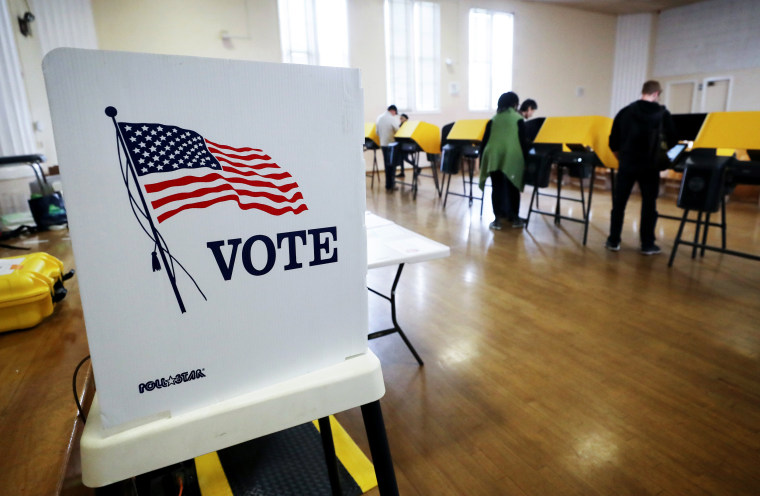For the first time, early voting will play a significant role in the Super Tuesday primaries this year. In four states — California, Colorado, Texas and Utah — early and absentee ballots are expected to be at least half the total vote.
The number of early votes cast in the Democratic primaries for Super Tuesday contests is 4 million, according to figures as of Monday provided by TargetSmart, the National Election Poll and state secretaries of state, which were analyzed independently by NBC News.
The total includes 1.6 million in California, where 415 delegates are at stake, or 30 percent of the Super Tuesday total.
Many of those voters, however, cast their ballots before three of the candidates withdrew: Pete Buttigieg, Amy Klobuchar and Tom Steyer. That led to frustration on the part of some of their supporters on Monday and Tuesday when they learned that their early votes had been wasted on candidates who were no longer in the race. (In almost all states, an early vote is final once it is cast.)
Amy Valore-Caplan, 46, a writer in Denver, showed up at a Klobuchar event Monday only to learn that the senator from Minnesota, for whom she had waited until the last minute to cast her mail-in ballot, had dropped out.
"I thought it was safe," she told The Associated Press. "I was waiting to make sure she didn't drop out."
Download the NBC News app for breaking news and politics
Many people also voted before they knew about some of the candidates' significant victories. Before the Nevada Democratic primary, which Bernie Sanders won by over 20 points, 1,117,435 Democratic primary voters in Arkansas, California, Colorado, Maine, North Carolina, Tennessee and Texas had already cast absentee ballots. Those voters didn't know about Sanders' overwhelming win in Nevada, so there may be a difference between the early vote in those states and the Election Day vote based on that result.
Ahead of the South Carolina Democratic primary, which Joe Biden won by over 20 points, 2,664,171 Democratic primary voters in the states available to TargetSmart had already cast ballots. The South Carolina results contributed to Biden's gaining ground on Sanders in the national delegate count, and the psychological boost his campaign won from that primary was lost on the early voters.
It's impossible to know whether the outcomes of the early contests would have changed early vote preferences, but it is possible that those results will affect Election Day preferences on Super Tuesday. There could very well be a significant shift in candidates who did well among early voters in the Super Tuesday states compared to Election Day voters.
It's not clear whether the early vote will benefit Sanders or more centrist candidates. Overall, early and absentee voters across Arkansas, California, Colorado, Maine, North Carolina, Tennessee and Texas skew on the older side — 68 percent are over 50 years old.
Among the California Democratic primary voters who had voted early as of Monday, 30 percent are under 50 years old. That includes only 9 percent who are under 30 years old.
While public opinion polling averages have Sanders well ahead of his competitors in California, his stronghold is among young voters, and given the age breakdowns, it's not clear that he will have an early vote advantage there.

